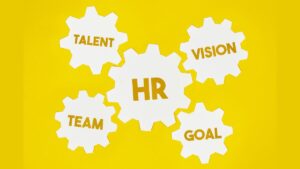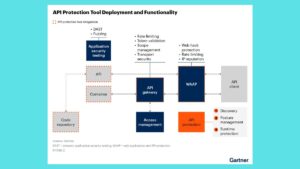HRTech Startups: Revolutionizing the Future of Work

The HRTech industry has rapidly evolved over the past decade, driven by the need for businesses to modernize their human resources processes and enhance the employee experience. HRTech startups are at the forefront of this transformation, offering innovative solutions that cater to the diverse needs of today’s workforce. From recruitment and onboarding to performance management and employee engagement, these startups are redefining how companies manage their most valuable asset: their people.
In this blog, we will explore what HRTech startups are, the key trends shaping the industry, the challenges they face, and how they are poised to revolutionize the future of work.
What Are HRTech Startups?
HRTech startups are companies that develop technology-based solutions to address various aspects of human resources management. They leverage cutting-edge technologies such as artificial intelligence (AI), machine learning (ML), blockchain, and cloud computing to create products that streamline HR processes, improve decision-making, and enhance the overall employee experience.
These startups are disrupting traditional HR practices by introducing new ways of attracting, managing, and retaining talent. They offer a range of solutions, including:
- Recruitment and Applicant Tracking Systems (ATS): Platforms that automate the hiring process, from job postings to candidate screening and interviews.
- Onboarding Solutions: Tools that facilitate seamless onboarding experiences for new hires, helping them integrate into the company quickly and effectively.
- Performance Management Systems: Software that enables continuous feedback, goal setting, and performance evaluations to drive employee growth and development.
- Employee Engagement Platforms: Solutions designed to boost engagement through surveys, recognition programs, and communication tools.
- Learning and Development (L&D) Tools: Platforms that provide access to training resources, courses, and skill development opportunities.
Key Trends in the HRTech Startup Landscape
The HRTech space is rapidly evolving, with several key trends shaping the industry:
1. AI and Machine Learning
AI and machine learning are at the heart of many HRTech innovations. Startups are using these technologies to automate repetitive tasks, such as resume screening, candidate matching, and employee sentiment analysis. AI-powered chatbots, for instance, can handle routine HR inquiries, freeing up time for HR professionals to focus on more complex issues.
Predictive analytics is another area where AI is making an impact, helping businesses forecast hiring needs, identify turnover risks, and develop proactive strategies to address potential challenges.
2. Employee Experience and Well-Being
The shift towards employee-centric HR solutions is driving the development of platforms that focus on enhancing the employee experience. Startups are creating tools that address various aspects of well-being, including mental health, work-life balance, and personalized career development.
These solutions are designed to foster a positive work environment, increase engagement, and reduce burnout, ultimately leading to higher productivity and retention rates.
3. Remote and Hybrid Work Enablement
With the rise of remote and hybrid work models, HRTech startups are developing solutions that support distributed teams. These include tools for virtual onboarding, remote performance management, and digital collaboration. The goal is to ensure that employees feel connected and supported, regardless of their location.
Startups are also exploring technologies like virtual reality (VR) and augmented reality (AR) to create immersive training experiences and virtual office environments, further enhancing the remote work experience.
4. Data-Driven Decision Making
Data analytics is becoming a crucial component of HRTech solutions. Startups are offering platforms that provide actionable insights into various HR metrics, such as employee engagement, performance, and diversity. These insights empower HR leaders to make informed decisions, optimize strategies, and measure the impact of their initiatives.
Advanced analytics tools can also help companies identify trends, predict future workforce needs, and develop targeted interventions to improve organizational outcomes.
5. Personalized Learning and Development
The demand for personalized learning and development solutions is on the rise, with startups offering platforms that cater to individual employee needs and preferences. These tools leverage AI to recommend tailored learning paths, courses, and resources based on an employee’s role, skills, and career goals.
By providing customized learning experiences, companies can support continuous skill development, enhance employee satisfaction, and build a more agile and adaptable workforce.
Challenges Facing HRTech Startups
While HRTech startups are driving significant change in the industry, they also face several challenges:
1. Market Competition
The HRTech market is highly competitive, with numerous startups vying for attention from businesses and investors. Differentiating their offerings and demonstrating unique value propositions are critical for startups to stand out in a crowded market.
2. Integration with Existing Systems
Many businesses already use established HR systems, and integrating new technologies can be a complex process. HRTech startups must ensure that their solutions can seamlessly integrate with existing platforms and workflows to provide a cohesive experience for users.
3. Data Privacy and Security
Handling sensitive employee data comes with significant responsibilities. HRTech startups must prioritize data privacy and security, complying with regulations such as GDPR and CCPA, and implementing robust measures to protect against data breaches.
4. Change Management
Adopting new HR technologies requires a shift in mindset and processes, which can be challenging for organizations. Startups need to support their clients through change management, providing training, resources, and ongoing support to ensure successful implementation and adoption.
The Future of HRTech Startups
The future looks promising for HRTech startups as businesses continue to prioritize digital transformation and employee experience. As the demand for flexible, data-driven, and employee-centric solutions grows, HRTech startups will play an increasingly vital role in shaping the future of work.
Innovations in AI, blockchain, and other emerging technologies will further expand the possibilities for HRTech, enabling startups to develop even more sophisticated solutions that address the evolving needs of the modern workforce. Startups that can navigate the challenges and leverage these opportunities will be well-positioned to lead the next wave of HR transformation.
Conclusion
HRTech startups are revolutionizing the HR landscape, offering innovative solutions that help businesses manage their workforce more effectively and efficiently. By leveraging cutting-edge technologies, these startups are not only automating routine tasks but also enhancing the overall employee experience, driving engagement, and supporting data-driven decision-making.
As the industry continues to evolve, HRTech startups will remain at the forefront of change, empowering companies to build stronger, more agile, and more resilient workforces. For businesses looking to stay ahead of the curve, embracing HR technology and partnering with forward-thinking HRTech startups will be key to future success.







